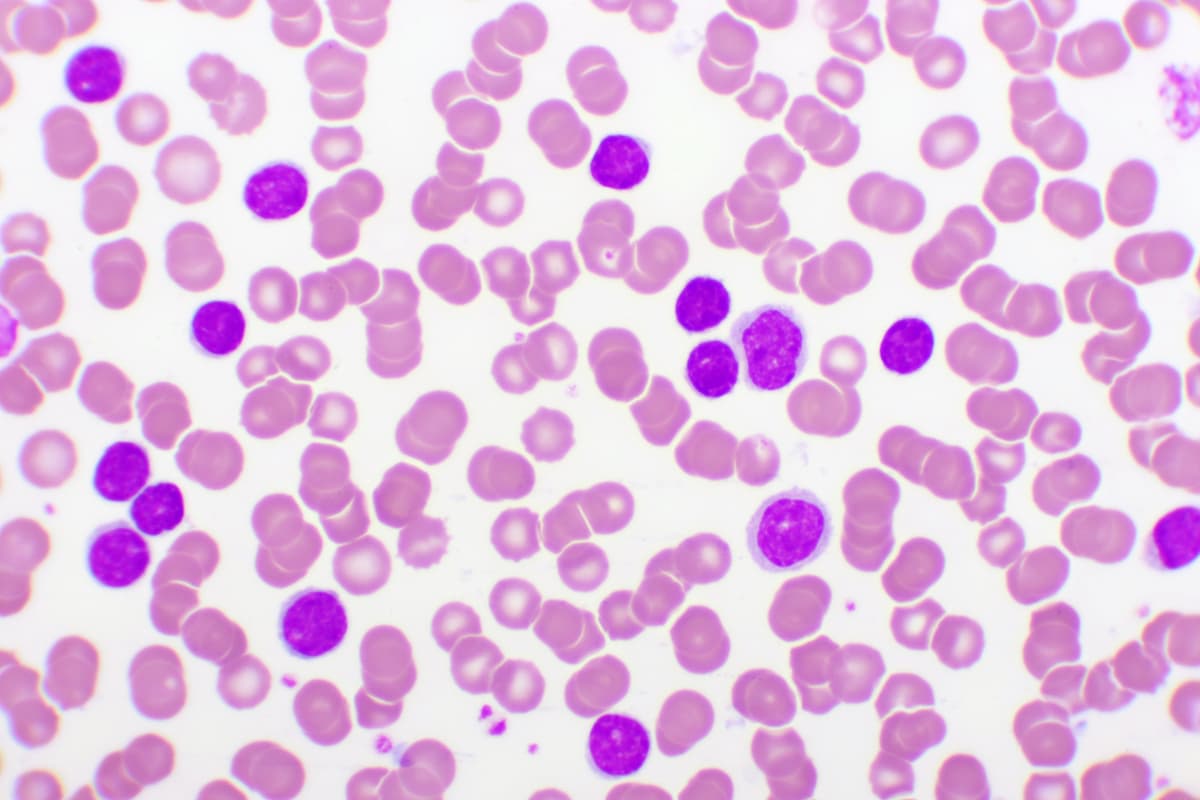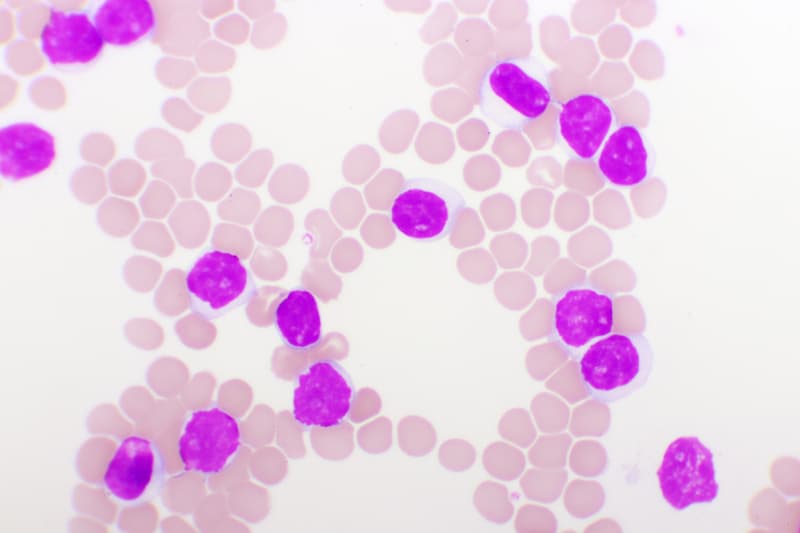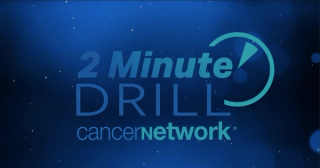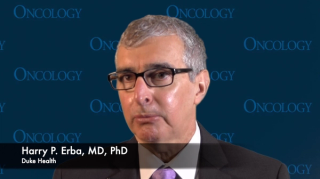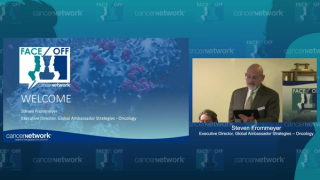
Leukemia
Latest News

Latest Videos

CME Content
More News

A potential efficacy benefit has been observed with lintuzumab-Ac225 plus salvage therapy for patients with relapsed/refractory acute myeloid leukemia.

The phase 3 ASAP trial found the use of watchful waiting followed by sequential conditioning prior to allogeneic hematopoietic cell transplantation found a similar survival benefit in patients with relapsed/refractory acute myeloid leukemia.
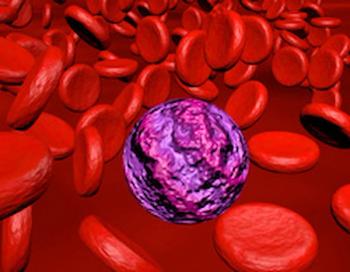
Revumenib, which was given a breakthrough therapy designation by the FDA, may be beneficial in the management of relapsed or refractory KMT2A-rearranged acute leukemia based on data from the phase 1 AUGMENT-101 trial.

The FDA’s approval of oral olutasidenib provides adults with relapsed or refractory acute myeloid leukemia harboring a susceptible IDH1 mutation a new treatment option.
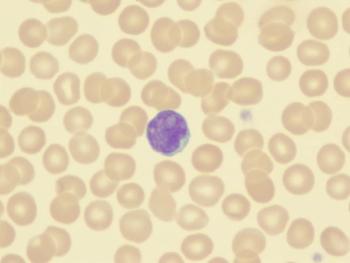
Real-World Data Support Use of Hypomethylating Drugs in Elderly Patients With Acute Myeloid Leukemia
The use of hypomethylating drugs such as azacitidine and decitabine improved outcomes for patients of advanced age with acute myeloid leukemia, according to findings from a recent retrospective study of real-world data.
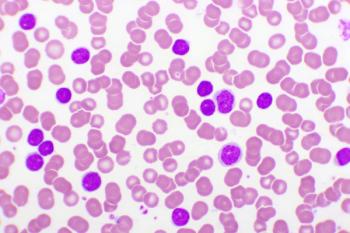
The European Commission based its approval of zanubrutinib for the management of chronic lymphocytic leukemia on data from the phase 3 SEQUOIA trial and the phase 3 ALPINE trial.

Patients with acute lymphocytic leukemia or lymphoblastic lymphoma can now receive asparaginase erwinia chrysanthemi at 25 mg/m2 on Monday and Wednesday followed by 50 mg/m2 on Friday, or 25 mg/m2 every 48 hours.

Among patients with Philadelphia chromosome–positive acute lymphoblastic leukemia, ponatinib plus chemotherapy yielded higher rates of minimal residual disease–negative complete remission compared with imatinib.

Two teams from leading institutions go head-to-head to debate the latest datasets and advances in chronic myeloid leukemia (CML).

Findings from a secondary analysis highlighted an association between improved quality of life outcomes and longitudinal use of approach-oriented coping strategies in patients with acute myeloid leukemia.
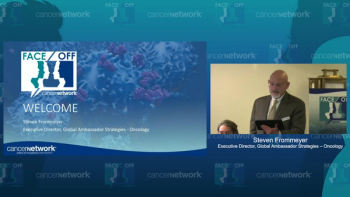
Dr DeAngelo shares data on the use of ponatinib for CML treatment after failure of second-generation TKIs.

Daniel DeAngelo, MD, PhD, presents data from a phase 3 study comparing asciminib and bosutinib after treatment with 2 or more prior TKIs in CML.

A conditioning regimen consisting of of Iomab-B prior to a bone marrow transplant met the phase 3 SIERRA trial’s primary end point of durable complete remission compared with conventional care in elderly patients with relapsed or refractory acute myeloid leukemia.

The Dana-Farber team puts Memorial Sloan Kettering to the test and questions the panel on the presented abstracts.

Dr Michael Mauro continues his presentation with a look at an analysis of the arterial occlusive events in the PACE trial in CML.

Quizartinib has received priority review from the FDA for the treatment of patients with newly diagnosed acute myeloid leukemia that is FLT3-ITD positive.

Michael Mauro, MD, presents data on a phase 2 ponatinib dose-ranging study in chronic-phase CML.

Steven Frommeyer introduces the two teams of competing physicians participating in Cancer Network® Face-off.

A panel of experts convened at the 2022 NCCN: Hematologic Malignancies Conference to discuss the classification, treatment options, and supportive care strategies available for patients with acute myeloid leukemia.

Topline results from the phase 3 ALPINE trial’s final progression-free survival analysis highlighted that zanubrutinib yielded higher progression-free survival compared with ibrutinib in patients with chronic lymphocytic leukemia.

Findings from a study examining the prognostic value of Nutritional Risk Index prior to hematopoietic stem cell transplant in patients with acute myeloid leukemia highlighted a need to consider other tools for assessing nutritional status among those undergoing transplant.

A real-world study found that time to discontinuation and time to next treatment outcomes associated with ibrutinib were not impacted by a baseline high risk of atrial fibrillation or stroke in patients with chronic lymphocytic leukemia or small cell lymphocytic lymphoma.

An 8-to-4 vote was cast by the FDA’s Oncologic Drugs Advisory Committee against the use of duvelisib in previously treated chronic lymphocytic leukemia and small lymphocytic leukemia.

Frequent targetable mutations in patients with extramedullary acute myeloid leukemia lends credence to the use of next-generation sequencing to determine the optimal targeted therapy approach.

In patients with acute myeloid leukemia receiving venetoclax, tumor lysis syndrome was uncommon; patients at high risk should be admitted for venetoclax dosing ramp-up.


